Both Exness and Tickmill are known to provide excellent service for professional traders. How do they compare in terms of trading conditions?
Which one, amongst Exness and Tickmill, offers a superior professional trading account? The two brokers are contrasted with each other frequently to determine which of the two is the superior option. Many traders might not realize that the ideal option for them could not be the greatest option for someone else, and there is nothing wrong with that. The following is a side-by-side comparison of the trading accounts offered by Exness and Tickmill, which should make it simpler for you to choose which platform is superior to the other:
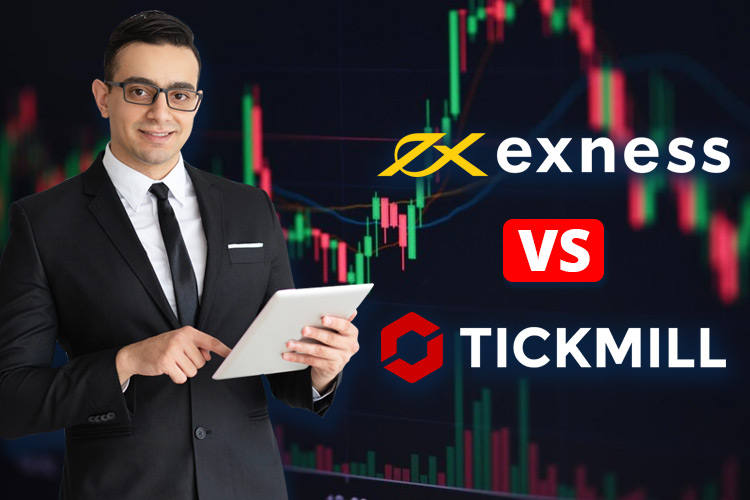
Getting to Know Tickmill
Tickmill is a regulated online broker that offers a respectable range of over 80 financial products available for online trading. They provide you access to an ion of trading platforms that are both highly professional and simple to use. My research led me to discover that many tools are available for performing in-depth market analysis and producing automatic trading recommendations.
The broker's trading circumstances include very low spreads and swift transaction execution speeds at the best available market prices. It certainly has left an impression on me that I find quite impressive. You can pick from a wide range of customizable account types and handy payment methods for quickly and easily filling your account. Starting out, you should consider opening a free demo account.
This is an excellent method to practice your techniques without taking any money on the line. You will only take a few minutes to finish the enrollment procedure. Tickmill obtains its liquidity from some of the world's most prestigious banks and hedge funds. It makes sure all your order executed properly with less.
When you make an order, they will try to match it against the best price that is currently available from that liquidity pool. In general, you can negotiate cheaper pricing with a broker if they have a greater volume of liquid assets. The presence of a large amount of liquidity can not only increase execution times but also result in improved spreads. One hundred percent of orders are cleared with their respective liquidity sources using quotations from those providers.
Tickmill is an award-winning global ECN broker, authorized and regulated by the Financial Conduct Authority (FCA) in the UK, CySEC in Cyprus, and the FSA of Seychelles. Founded in 2014, it offers its retail and institutional clients various trading services with a prime focus on forex, stock, commodities, CFDs, and metals.
For traders who prioritize the value of spreads in broker selection, Tickmill provides excellent services with low spreads, starting from 0.0 pips.
The London-based company has a mission to provide clients with the best possible trading environment, so clients can focus on trading and become successful traders. One way to reach its mission is to offer a fast-execution of 0.15s. With this facility, it's no wonder that Tickmill gets the 2019 Best Forex Execution Broker award by the CFI.co Awards. Also, Tickmill received the achievement as Best CFD Broker Asia 2019 by International Business Magazine, the Best Forex Broker Asia, and the Most Transparent Broker 2019 by Forex Awards.
After registering in Tickmill, traders can choose the most ideal asset among 60 currency pairs that they can trade. If traders aren't sure yet to open a real account, Tickmill recommends learning to trade through a demo account.
There are also educational features such as Webinars, Seminars, Ebooks, and Video Tutorials. All of these facilities can be used by traders to increase knowledge about trading and the financial market as a whole. If traders already have enough knowledge, they have a greater opportunity for earning profit consistently.
For traders registered in real accounts, they can choose between provides three types of accounts, including Pro Account, Classic Account, and VIP Account. Traders can open positions with a minimum order of 0.01 Lots. This applies to all types of accounts.
The company provides recommendations for traders who are still confused when choosing an account. For example, for novice traders, Tickmill encourages clients to choose a Classic Account. It offers optimal conditions with fast order execution while enabling traders to use virtually any trading strategy. Additionally, the account is trade commission-free so traders only pay the bid/ask spread. Other than the 3 main accounts above, Tickmill also provides an Islamic account (swap-free).
The downside is, trading with Tickmill will only enable traders to use MetaTrader 4 as their offered trading platform. Although not much if compared to other brokers, the Tickmill platform provides a user-friendly and highly customizable interface, accompanied by sophisticated order management tools to help traders control positions quickly and efficiently.
The convenience of trading on Tickmill is enhanced by the existence of One-Click EA integrated on MT4. Traders will get Stop Loss and Take Profit calculations automatically. On top of that, Tickmill provides a VPS hosting for automated traders that can't be bothered with technical problems such as troublesome internet connection.
They offer several third-party research solutions, including Autochartist, which is a popular pattern-recognition software that uses automated technical analysis to make forecasts and generate trading signals. Autochartist is available both in Tickmill's web portal and as a platform plugin for MetaTrader 4.
As a Tickmill client, a trader can deposit and withdraw with a variety of payment methods, including Visa, Mastercard, bank transfer, and Skrill. Tickmill accepts deposits and withdrawals in 4 currencies, which include USD, EUR, GBP, and PLN.
Overall, Tickmill is a competitive broker in spreads and provides a safe trading environment with its regulated entities in three different jurisdictions. Although their trading platform is not outstanding, the analytical tools they present to equip traders' needs are considered by retail broker standards.
Tickmill Pro Account
It's great that the broker offers three distinct real account types so that they may meet the requirements of a wide variety of traders. You can use the Classic, the Pro, or the VIP account. Over 84 trading products, including CFDs on over 60+ foreign exchange currency pairs, 15 stock indices, WTI, precious metals, and bonds, are available to trade across all accounts. The primary aspects that set these accounts apart are the spreads, commissions, and the required minimum deposit.
The variable spreads on the pro account begin at just 0 pip, and the commission rate is only $2 a standard lot per side. The smallest lot size is 0.01, and the maximum leverage is 1:500. Traders that employ scalping strategies, which depend on minute price shifts, may find this account an excellent option. Having said that, the required minimum deposit can be beyond reach for many different traders. But it isn't too expensive, with a minimum deposit of $100. You will need to fill out the online application form, which they estimate will take you around three minutes to do if you want to establish an individual customer account.
This account takes safety measures very seriously; one of the pieces of evidence can be seen in the application process. Once your information has been submitted for KYC, you must validate your email address and send in your Proof of Address (POA) and Proof of Identity (POI) papers. When the accounts team has finished verifying your papers, you will be able to fund your account and begin trading when they have done so. In order to create a corporate account, you will be required to present supplementary paperwork, such as a certificate of incorporation and articles of association. While creating an account, support agents are available to help you if you have any questions or concerns or choose the right account for you.
Getting to Know Exness
In 2008, Exness opened its doors for business as a broker worldwide. Exness has seen significant expansion over the past few years, and seven distinct governments govern the company. Trading is possible with a highly diverse assortment of tradable assets. Check out the following review to learn whether or not Exness is a decent option for you to work with as your Forex broker.
Seven different regulatory bodies keep Exness in check. The business has decided to withdraw from both the European Union and the nations that are part of the European Economic Area (EEA) in 2019. It is one of the few Forex and CFD brokers that publish its monthly trading volume on its website, making it one of the most unique features of this particular company. As one looks deeper, one discovers that the company's typical trading volume exceeds $600 billion, placing it among its most important competitors.
The choice of broker is adjusted to the needs of each trader. If you are a trader who only needs a basic platform and trading features with the best attributes, then Exness can be your best choice.
Exness covers its lack of feature variations with other advantages like low spreads starting from only 0.1 pip. This is very suitable for traders who use scalping strategies (Scalper). Spreads on major pairs in certain account types can also be as low as 0.0 pip, depending on market conditions.
Not only that, but traders can also enjoy other advantages such as automatic fund withdrawals. Exness processes the majority of client withdrawals instantly, without manual checks; however, withdrawals may be subject tos depending on the payment provider or method of choice.
The safety of traders' funds is also guaranteed as Exness is one of the European-based STP/ECN brokers. Exness's ability to become an official partner of the Real Madrid soccer team for 3 years, starting July 2017, also provides evidence that the company has high solidity.
Deposits and withdrawals may be made 24 hours a day, 7 days a week. However, it is important to note that the company shall not be liable fors in processing deposits and withdrawals if suchs are caused by the payment system.
Traders do not need to worry about transaction fees when depositing and withdrawing. Exness doesn't charge any transaction fees to traders even though some charges may be incurred depending on the payment provider of choice. A variety of payment methods are provided for traders, including Wire Transfer, Bank Card, Neteller, Skrill, and many others.
The financial reports and metrics on the Exness website are audited quarterly by Deloitte, one of the four largest public accounting firms globally.
Moreover, Exness is one of the mote transparent brokers in the online trading industry. Traders can find out all information about this company on the website, such as trading volume, number of active clients, client deposits, company funds, and many more.
The platforms provided by Exness vary in MetaTrader 4, MetaTrader 5, Web, and Mobile platforms. This makes it easy for traders when trading on Exness, as they can also access Exness platforms anywhere and anytime.
Over the years, Exness has developed into a broker that attracts traders. Trader's trust is further enhanced by its compliance with financial regulations like the FCA and CySEC.
One measure of client confidence can be put on the trading volume. By December 2018, their clients' monthly trading volume reached USD348.4 billion and active traders around the world surpassed 50,342.
Through the program offered by Exness, traders also have the opportunity to earn extra income by becoming their partners. From the Introducing Broker (IB) program, partners can earn up to 33% spread commission from every new client that registers with them.
Additional income can also be obtained from Exness Partners. Traders can get a spread commission of up to 25% per transaction made by traders who register through an affiliate link.
When trading with Exness, clients can also make use of its free VPS hosting services. A VPS (Virtual Private Server) offers increased reliability and stability for traders as they can maintain their trades and expert advisors without interruption in the event of unexpected technical issues, such as internet or electricity downtime.
From the review above, it can be concluded that Exness is a favorite broker for traders because of low spreads and flexible account types. This condition is very suitable for traders with limited funds but is in need of more opportunities to get maximum profit. This broker is also well known for its maximum support on both new and existing partners.
Exness Pro Account
Standard and professional accounts are the two primary types of trading accounts offered by Exness. After then, the normal account is split into two distinct parts: MetaTrader 4 and MetaTrader 5. The Standard and the Standard Cent account types are available on the MetaTrader 4 platform. Because it is possible to buy and sell Standard Cents in micro-lots, this coin is more suitable for new traders entering the business.
One of the most popular accounts offered by Exness is the Professional account. The most notable distinction between the two accounts is that the Professional account offers 0.0 pips spread. It requires a minimum commission payment of $3.5 for each deal. This trading account is perfect for those with a lot of market expertise. Raw Spread, Zero, and Pro are its three distinct varieties. During my analysis of the Exness professional account, we concluded that the Raw Spread is superior since it has a narrower spread. Yet, the basic account is the one I suggest traders use most of the time.
Final Verdict
While both Exness and Tickmill have great professional trading accounts, there is no doubt that Tickmill takes the win for this one. The Tickmill Pro account offers better services and better trading conditions. You should be good to go as long as you practice first in a demo account.
Exness and Tickmill is not the only broker that caters to professional traders. Which broker offers the best possible trading conditions for professional traders and what quality to look for in them?

 Dedicated FREE FOREX VPS
Dedicated FREE FOREX VPS Free FOREX Virtual Private Server
Free FOREX Virtual Private Server MT4 Demo Contest, Get $500
MT4 Demo Contest, Get $500 Sign Up for an Account, Claim 60% Deposit Bonus
Sign Up for an Account, Claim 60% Deposit Bonus Free MT4/MT5 VPS 2024
Free MT4/MT5 VPS 2024 Send E-mail and Get Free Merchandise
Send E-mail and Get Free Merchandise $1K Refer a Friend Bonus for Pepperstone Pro clients
$1K Refer a Friend Bonus for Pepperstone Pro clients Maximize Your Earnings with 100% Deposit bonus
Maximize Your Earnings with 100% Deposit bonus Trade to Win, $5,000 Monthly Demo Contest
Trade to Win, $5,000 Monthly Demo Contest Claim 30% + 15% Deposit Bonus from LiteFinance
Claim 30% + 15% Deposit Bonus from LiteFinance
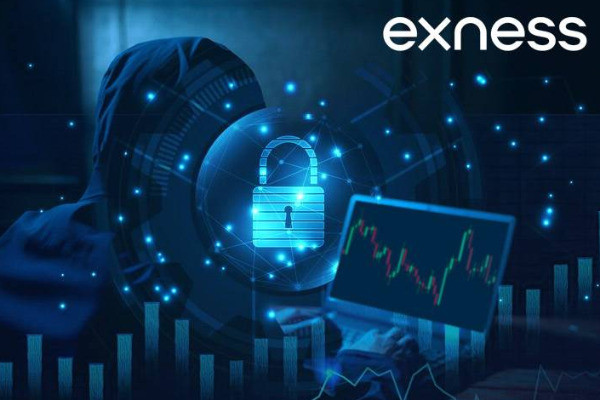

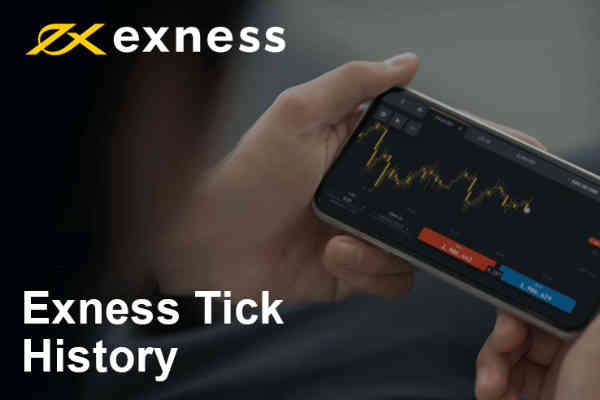
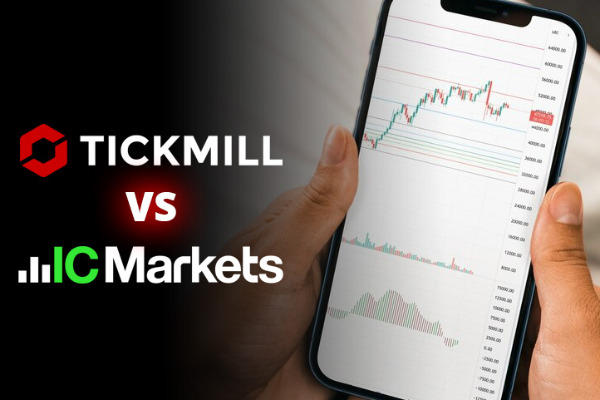
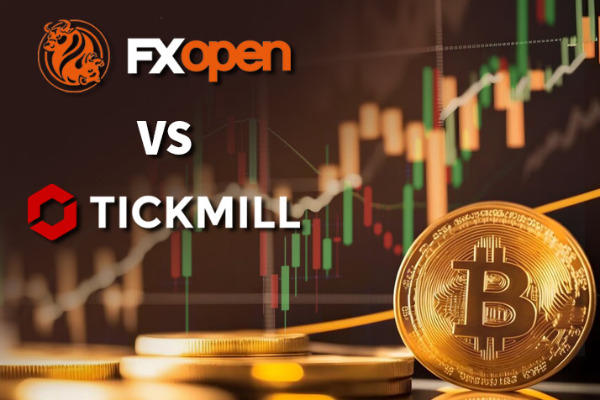
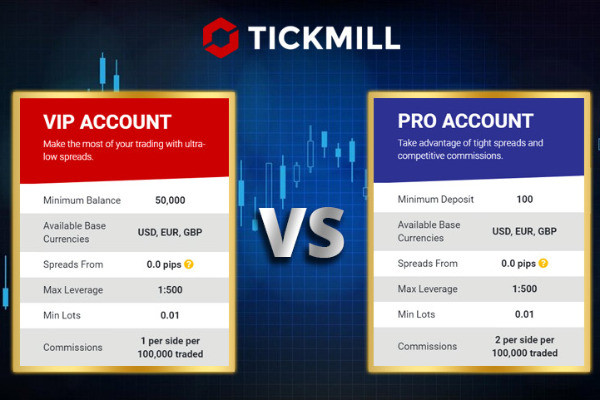
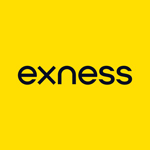
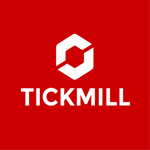

26 Comments
Douglas
Mar 9 2023
Speaking of pro accounts, I as a newbie can get really confused as the minimum deposit and leverage sometimes in the pro account are actually the same. If I take the example of TickMill, after seeing the broker's reviews on this site, the minimum deposit of the classic Tickmill account is $100 and it is the same as the pro account.
As a beginner, can I use the pro account instead of the classic account as it seems that the spreads and commissions of the pro account are lower than that of the classic account. And what is the main difference between the Tickmill Pro account and the Tickmill Classic account?
Russell
Mar 9 2023
Douglas: Let me answer :
The main difference between the two is how they charge you for trading. The Tickmill Pro account is designed for serious traders who trade a lot and want the tightest possible spreads. This account charges you a commission on top of the spread, but in return, you get access to super low spreads as low as 0.0 pips.
On the other hand, the Tickmill Classic account is for traders who prefer a simpler pricing model. You won't be charged a commission, but the spreads will be a bit wider, starting from 1.0 pips. This account is good if you trade less frequently or with smaller amounts.
So, if you're a professional trader who likes to trade a lot, go for the Tickmill Pro account. But if you're more of a casual trader, the Tickmill Classic account might be a better fit for you.
Douglas
Mar 9 2023
Russell : Thanks for answering! So basically, professional traders are more likely to open more positions, right? To do this, they need a lower spread due to the spread if the trader opens a position in the trade. And it is very understandable that nowadays, this pro account can be perfect as spreads start from 0.0 pips.
And meanwhile, as starters, we may need a simpler pricing account, such as the no-commission classic account, but the spread is always higher d.' habit. But that's okay because the value of pips depends on how much I trade in a trade
Brian
Mar 9 2023
The Exness Raw account looks very appealing to me. I mean it can offer 0.0 pips spread. This is little. Meanwhile, the tickmill account, although it doesn't explain too much, the spreads seem to start from zero. SO in terms of spreads, Exness Raw spreads really win this fight. I wonder how can Exness offer low spreads, raw spreads can start from 0.0, while the real spreads are earnings for the brokers, right? ? How can Exness make a profit if it still offers 0.0 pips to the trader? I need fast explanation in here! Thank you!
Christensen
Mar 9 2023
Brian:
Exness can offer low spreads because they work with big financial institutions called liquidity providers. These providers give Exness access to the best prices and spreads available in the market, and Exness passes them on to traders.
Exness charge higher commission on raw spread accounts, it is about $3.5 per 1 lot at standard lot. And as you know, the lower spread can mean higher commission. That is where the Exness can get the profit.
So, in short, Exness can offer low spreads because they have access to the best prices from liquidity providers, and they make a profit by marking up the spread slightly.
You can read about the Exness at here for more details : Exness Review
Dusan
Mar 15 2023
As a beginner in Forex trading, I have a question. I plan to open an account once I learn and find the best strategies in a demo account. I understand that choosing the right account is crucial. If I want to take profits seriously, is it best to use a standard account? What type of account is best for achieving significant profits? Is a standard account sufficient, or do I need to open a pro account? I want to become rich, but I'm unsure whether a standard account is enough, and I don't want to risk using a pro account if it's not suitable for me. Should I learn more about trading in the demo account before making a decision? Thank you for your help!
Hayan
Mar 15 2023
I have the same question about the professional account. Both Tickmill and Exness offer this type of account. According to the trading terms mentioned in this article, Tickmill's spread starts at only 0 pips, and the commission is just $2 per round. Meanwhile, Exness has an even lower spread that starts at 0.0 pips, with a commission of $3.5. It seems like the pro account offers lower commission fees, so why should beginners open a standard account instead of a professional account? If the minimum deposit is the only concern, then I have enough money to open a professional account. I believe that I need more features than the standard account, so can you explain why it's recommended for beginners to start with a standard account? Thank you!
Eibar
Mar 15 2023
Hey there! If you're a beginner in Forex trading, it's important to choose the right account. A standard account is perfect for those who want to trade with smaller amounts of money and lower risk. But if you're serious about making profits and have more money to invest, a professional account might be a better option. However, keep in mind that pro accounts usually require higher minimum deposits and come with different trading conditions, such as lower spreads and commissions.
Starting with a standard account allows you to gradually build up your skills and knowledge before moving on to more advanced trading strategies and features. This is important because pro accounts can be riskier and harder to manage. So take your time, practice on a demo account, and choose the account that best suits your needs and goals. Remember, you can always switch to a pro account later on when you feel more confident and experienced.
Charles
Mar 15 2023
Do brokers always require identity verification for their clients, such as in the case of Tickmill? What are the documents needed to prove identity and address, and how long does the verification process usually take? Additionally, if someone already has an account with Tickmill and wants to open a pro account, will they need to go through the KYC process again, or is the verification process only required for new clients?
Once again, I am really dont know about the purpose of doing the verfication and it is really annoying me sometimes. Hopefuly there are no more KYC if you have already opened the other account.
Taylor
Mar 15 2023
When you sign up for an account with a broker like Tickmill, they need to verify your identity to make sure you're not a criminal or doing anything shady with your money. This is required by law to prevent money laundering and other illegal activities.
To prove your identity, you'll usually need to provide a copy of your passport or ID card, and a document like a utility bill or bank statement to show your address. The verification process usually takes a few days.
If you already have an account with Tickmill and want to open a different type of account, like a pro account, you'll probably need to go through the verification process again. This is because different types of accounts may have different rules and regulations that need to be followed. But you can always ask Tickmill if they can use the same documents from your previous verification to speed things up.
Jack
Apr 3 2023
I find the pro account offered by Tickmill and Exness interesting, but I believe it's more suitable for experts. As a beginner, I am not familiar with the work of a pro trader. For instance, I am unsure whether pro traders conduct their own analyses and set Stop Loss (SL) and Take Profit (TP) levels or not. Moreover, I am curious about the volume of trades that pro traders typically make. Is it higher than what we usually trade? Additionally, I would like to know what trading styles are commonly used by pro traders. Do they prefer scalping, day trading, swing trading, or position trading?
Alvarez
Apr 3 2023
Hey, let me answer. It is in general okay so; the other opinion may differ with me.
It's important to note that becoming a pro trader takes time, dedication, and discipline. It's not something that can be achieved overnight. As a beginner, it's important to focus on learning the fundamentals of trading, such as risk management, technical analysis, and developing a trading plan.
Darren
Apr 3 2023
Well, when it comes to the pro accounts offered by Tickmill and Exness, it seems that they each have their own advantages and disadvantages. So, when choosing between the two, it really comes down to personal preference. However, as a beginner trader, I'm curious about pro accounts in general.
What sets a pro account apart from other types of accounts? And in terms of profitability, how much profit can be expected? Is a pro account more profitable than a standard account? I would appreciate an explanation on this matter.
Gaven
Apr 3 2023
In general, the main difference between a standard account and a pro account is the trading conditions offered by the broker. Pro accounts typically offer lower spreads, faster trade execution, and more advanced trading tools than standard accounts. You can compare it too in this site.
As for profitability, it really depends on the individual trader's strategy and trading style. While pro accounts may offer better trading conditions, there is no guarantee that a trader will be more profitable using a pro account compared to a standard account. So, it is back to your preference! Hope it can clear about the pro account in general!
Jurgen
Apr 3 2023
If you're serious about getting into Forex Trading and want to take your trading to the next level, you may want to consider opening a professional or "pro" account. A pro account offers many additional benefits that can help you achieve your trading goals.
One of the advantages of a pro account is that the more you trade, the more features you can access. For example, if you deposit $20,000 in Exness, you can enroll in the Preferred Premier Program, which offers a range of features tailored to your needs. (the more about premier program of Exness, you can read at here : What Is Exness Premier Program )
Some of the benefits of the Preferred Premier Program include priority customer support, exclusive educational materials, enhanced trading analytics, and special promotions and rewards. The more you deposit, the more benefits you'll receive, including a private account manager who can provide personalized support and guidance.
Mamun Bin Raki
Apr 18 2023
How do the trading conditions offered by Tickmill's and Exness' Pro account compare, and what are the key features and benefits of each? Specifically, how do the Pro accounts differ in terms of pricing, execution, and trading tools, and how do these differences impact the trading experience for traders? Additionally, what are some of the pros and cons of trading with each broker, and how can traders effectively leverage the features of each Pro account to improve their trading strategies and performance?
Siojun
May 27 2023
@Mamun Bin Raki: Hey there! Let's talk about the advantages and disadvantages of both accounts and also the leverage they offer. In addition to that, the article covers all the information you're looking for.
Now, let's delve into the pros and cons. Tickmill's Pro account is renowned for its competitive pricing, quick execution, and a wide ion of trading instruments. However, it's important to note that Tickmill has limited regulatory coverage compared to Exness, which may be a concern for some traders. On the flip side, Exness' Pro account provides a diverse range of trading instruments, strong regulatory oversight, and extra trading tools. However, some traders might view the absence of commission-free trading as a drawback.
To make the most of each Pro account's features, it's crucial to align them with your trading strategy and preferences. If you prioritize cost-efficiency and fast execution, Tickmill's Pro account could be a good fit for you. If regulatory coverage and additional trading tools are important, Exness' Pro account might be more appealing. By carefully assessing the pros and cons, you can make an informed decision that optimizes your trading strategies and performance.
Kiron Sarker
Apr 18 2023
How do Tickmill and Exness ensure fair and transparent trading conditions for their clients, and what measures do they take to protect client funds and prevent conflicts of interest? Specifically, what types of regulatory oversight do each of these brokers have, and how do they comply with industry standards for safety and security in the forex market? Additionally, how do Tickmill and Exness' commitment to transparency and client trust set them apart from other brokers, and what are some best practices for traders who want to ensure they are trading with a reputable and trustworthy broker with a Pro account offering?
Saiko
May 20 2023
@Kiron Sarker: Hey there! Let me answer in short explanation! Tickmill and Exness go the extra mile to ensure fair and transparent trading conditions for their clients and protect their funds. They are regulated by well-respected authorities like the FCA and CySEC, which means they have to comply with strict standards and guidelines.
To protect client funds, both brokers keep them separate from their own operational funds in segregated bank accounts. They also participate in investor compensation schemes for added protection.
To avoid conflicts of interest, Tickmill and Exness don't act as a dealing desk and don't take the opposite side of client trades. This means they have no incentive to manipulate prices or profit from client losses.
Their commitment to transparency is shown through real-time market information, execution statistics, and clear terms and conditions. They continuously improve their services based on client feedback and operate with a focus on client trust.
When choosing a reputable broker with a Pro account offering, it's important to research and compare based on regulatory status, client reviews, and industry reputation. Look for transparency in fee structures, execution policies, and disclosure of conflicts of interest. Verify their regulatory licenses and assess their financial stability and customer support!
Hope it can clarify your things!
Bojan
May 27 2023
When it comes to trading in the forex market, one aspect that often comes up is the concept of spreads. The spread refers to the difference between the bid price (the price at which traders can sell a currency pair) and the ask price (the price at which traders can buy a currency pair). In the forex market, spreads are an inherent part of trading and are influenced by various factors.
Now, the author mentioned that the broker being discussed offers very low spreads and swift transaction execution speeds, which left quite an impressive impression. This raises the question of who actually determines the spreads in forex trading: is it the broker or the market itself?
Ariel
Jun 2 2023
@Bojan: Let me explain to you! The determination of spreads in forex trading involves both the broker and the market. The market itself sets the general supply and demand for a currency pair based on economic factors, geopolitical events, and investor sentiment. However, it's the broker who quotes the bid and ask prices to traders.
Brokers obtain pricing information from liquidity providers, such as banks and financial institutions. These liquidity providers supply the buying and selling prices for different currency pairs. The broker then adds their own markup, which represents their profit and covers their operational costs, such as technology infrastructure, customer support, and regulatory compliance.
As a result, different brokers may offer different spreads. Some brokers may have tighter spreads, while others may have wider spreads. The competitiveness of the spreads offered by a broker can depend on various factors, including the broker's business model, the volume of trades they handle, and their relationships with liquidity providers.
Akheng
Jul 1 2023
What's the deal with that 0.0 pips spread in Exness' Professional account? I mean, how awesome is that? Can you imagine the advantage it gives you as a trader? With such a tight spread, your trading costs are practically non-existent, dude! It means you get to keep more of your hard-earned profits instead of paying hefty spreads. And let's not forget about potential profitability, man. A low spread like that can make a huge difference in maximizing your gains. But hey, does this sweet deal hold up in all market conditions? Like, even when things get crazy volatile or liquidity is low?
Erwin
Jul 2 2023
@Akheng: You got it, my friend! That 0.0 pips spread in Exness' Professional account is definitely something to get excited about. It's like having a trading superpower, allowing you to minimize your trading costs and potentially boost your profitability.
With such a tight spread, you can enter and exit trades more efficiently, which means you get to keep more of your profits in your pocket. It's like getting a discount on every trade you make! And when it comes to maximizing gains, every pip counts. A lower spread can make a significant difference in your overall profitability, especially for traders who frequently execute trades or employ scalping strategies.
Now, let's talk about its reliability in different market conditions. Exness strives to maintain competitive spreads, including the 0.0 pips spread, across various market conditions. However, it's important to note that market volatility and liquidity levels can impact spreads in general. During times of high market volatility or low liquidity, spreads may widen temporarily, affecting all brokers, including Exness. This is a common occurrence in the financial markets, and it's something traders should be mindful of.
Overall, that 0.0 pips spread in Exness' Professional account is indeed a fantastic advantage for traders. It allows you to reduce your trading costs, potentially increase profitability, and take advantage of tight pricing conditions. Just keep in mind that spreads can vary based on market conditions, but Exness strives to provide competitive spreads even in challenging market situations.
Kise Ryota
Sep 1 2023
Tickmill is compared to other brokerage firms in the sophistication of the pro accounts offered. In a way of thinking, it seems like Tickmill is quite generous in terms of deposits (minimum $100), compared to Exness offering a minimum deposit of $200 for its pro account. I also don't really like some of the Exness Pro accounts because the trading fees are pretty expensive, around 7 USD because they offer a commission of 7 USD even though the spread is 0 pips. That's the reason I support the Ticmiill account. However, I don't know too much about this broker. What are the unique advantages and benefits of choosing Tickmill as a platform for advanced trading? Additionally, can you discuss any potential drawbacks or limitations associated with using Tickmill for advanced trading, and provide tips and advice for traders looking to optimize their experience on the platform?
Sorry guys, I have one more question, but it's a bit off-topic in this article. I am inquisitive, does Tickmill Allow Islamic Accounts? Can I not have this account if I am a non-Muslim?
Akashi
Sep 2 2023
When it comes to advanced trading features and tools, Tickmill stands out from the crowd, folks! They offer a range of cutting-edge tools and technologies that give traders an edge in the markets. One of its standout features is its advanced graphing capabilities.
Tickmill also provides advanced order types, such as limit orders, stop orders, and trailing stops. This order type gives you more control over your trades and allows you to implement more advanced trading strategies. Now, let's talk about the unique advantages of choosing Tickmill for advanced trading. Firstly, they offer competitive spreads, meaning you can maximize your profit potential. They also have fast execution speeds, ensuring that your trades are executed quickly and accurately. Tickmill operates as an ECN broker, which means you have access to deep liquidity and can enjoy tight spreads during volatile market conditions.
Midorima
Sep 3 2023
Hello guys, I want to add an explanation to the answer to an unanswered question. In terms of drawbacks or limitations, it is important to note that Tickmill's advanced features may require a certain level of experience and knowledge. To optimize your experience on the Tickmill platform, my suggestion is to start with a demo account. This lets you familiarize yourself with advanced features and practice your strategies without risking real money.
Furthermore, Tickmill has offered Islamic accounts on its platform. But yes, swap-free accounts are usually only available to Muslim traders, as the purpose of these accounts is to comply with Islamic finance principles that prohibit charging or paying interest. Swap value is essentially the cost of holding a position overnight. Although non-Muslim traders cannot open swap-free accounts, they can still profit from swap rates. If a trader buys a currency with a higher interest rate than the currency they are selling, they will earn a positive swap rate. Conversely, if a trader sells a currency with a higher interest rate than the currency he bought, then he will pay a negative swap rate.